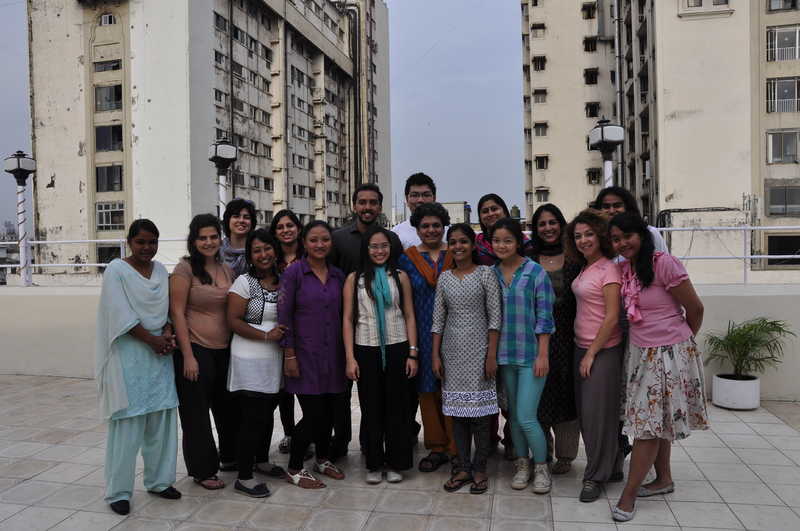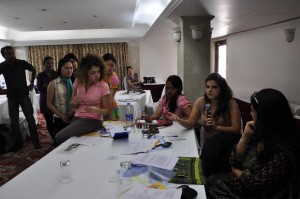Why is it easier for women to wear a pair of trousers than it is for men to don a dress? What toys should we buy our children? How has capitalism molded gender constructs? Can a woman marry and refuse to have children? Can she refuse sex in a marriage? If patriarchy does not work, should we campaign for matriarchy instead?
These are some questions that our Youth Champions discussed on the first day of ASAP’s Youth Advocacy Institute. The first session, on gender and sexuality, began a little after half-past nine, and was chaired by Dr. Manisha Gupte, the founder of MASUM. Soon after ASAP’s Coordinator Dr. Suchitra Dalvie joined in with questions that sparked insightful conversations, and challenged the participants to think outside of their comfort zones.
Dr. Gupte’s sessions were rife with case studies, and stories from ancient, medieval, colonial and modern history. Out of the many stories she told, one stood out. A female Spanish Olympian was asked to undergo medical examination before she participated in the contests. Tests showed that she carried a Y chromosome, in addition to two X chromosomes. She was immediately told she could not compete as a woman. She was sent home stripped all at once of her gender identity, and her opportunity to further her career.
Dr. Dalvie’s session came next, and challenged the students to wonder how pro-choice they were. Most of them agreed that abortion should be a woman’s right, but there was a strong debate about a husband’s right to divorce a woman for having an abortion. Dr. Manisha weighed in, “If she felt the need to be discreet about her abortion, then their marriage already has a crack. The crack was not created by abortion, only widened by it. So a man can leave her if that is not what he wants, but he cannot blame it on the abortion. It is the relationship that had problems.”
There were other debates on the institution of marriage. Why do people marry – to have children who can then go on to inherit their property, or to be in a long relationship? Why are there rules about who one can marry or have sex with? Can a woman be in a marriage and not want to be a mother?
Dr. Dalvie and Dr. Gupte also urged the students to deconstruct patriarchal rules that controlled women’s fertility, and to recognize its ties to the capitalistic idea of inheritance They also spoke about gatekeepers. If in olden days, priests were allowed to use religion as their means of exercising such control, today lawyers, doctors and geneticists do the same using law, biology and genetics as their cover.
Dr. Gupte also asked the students to wonder how often the law is old patriarchal rules in a new sophisticated avatar. A good law would protect its vulnerable citizens, but instead most laws, make it easy for men to inherit property, condemn women to a life of dependency, forge rules that enable families to control a woman’s fertility, and makes it difficult to live outside a normative marriage.
The heavy discussions were intertwined with lighthearted games that gave the students a chance to get to know each other, and for the ASAP Staff to understand their expectations and aspirations.
We wound up around 6 p.m., after watching Bol, a Pakistani movie where a stereotypical patriarch controls the lives of his children and wife. We look forward to discussing this with the participants today!
You can take part in the discussions and write to us anytime. We are planning to tweet updates from the YAI using the hashtag #ASAPYAI. We are also posting photos to Facebook, and report to our blog!
Do read for more information. For regular updates from ASAP please subscribe to our blog.
Original source: http://asap-asia.org/blog/youth-advocacy-institute-day-1-deconstructing-patriarchy/







